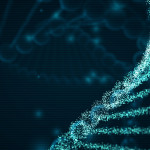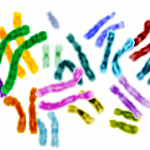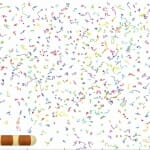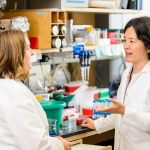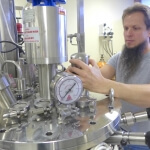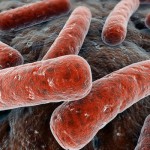Tag DNA
UW–Madison researchers find persistent problems with AI-assisted genomic studies
Researchers are increasingly attempting to work around this problem by bridging data gaps with ever more sophisticated AI tools.
New tool predicts three-dimensional organization of human chromosomes
The predictive tool is a boon for researchers studying how cells control the activity of genes, helping explain how cells achieve their key functions and how they go haywire, as happens in diseases such as cancer.
Gene-editing tool now being used to develop better antibiotics
Jason Peters and colleagues have repurposed the gene-editing tool CRISPR to study which genes are targeted by particular antibiotics, providing clues on how to improve existing antibiotics or develop new ones.
Byzantine skeleton yields 800-year-old genomes from a fatal infection
Researchers discovered extraordinarily well preserved microfossils — mineralized ‘ghost cells’ — that closely resembled bacteria from the genus Staphylococcus.
Fred Blattner: genetics pioneer, entrepreneurial success, and all that jazz
Fred Blattner has been doing DNA research for more than 50 years, and he founded or co-founded three successful companies all focused on DNA: DNASTAR, Nimblegen and Scarab Genomics.
Bacteriology professor Jade Wang named HHMI Faculty Scholar
Jue “Jade” Wang, an associate professor of bacteriology at the University of Wisconsin–Madison, has been named a Howard Hughes Medical Institute (HHMI) Faculty Scholar.
Small-scale protein production a big business for UW spinoff
Unlike many young biotech spinoffs, Fritz Schomburg's company — Lytic — earns its income not from federal research grants, but from shipping product.
In the lab, scientists coax E. coli to resist radiation damage
Capitalizing on the ability of an organism to evolve in response to punishment from a hostile environment, scientists have coaxed the model bacterium Escherichia coli to dramatically resist ionizing radiation and, in the process, reveal the genetic mechanisms that make the feat possible.
Missing WWII soldier may be found with help of UW–Madison scientists
On Aug. 13, 1944, German soldiers retreating from a U.S. Army reconnaissance patrol in Normandy blew up an armored car. Pfc. Lawrence S. Gordon, a 28-year-old Canadian enlistee, had been riding in the Ford-build M8 Greyhound, and likely died in the explosion and fire.

